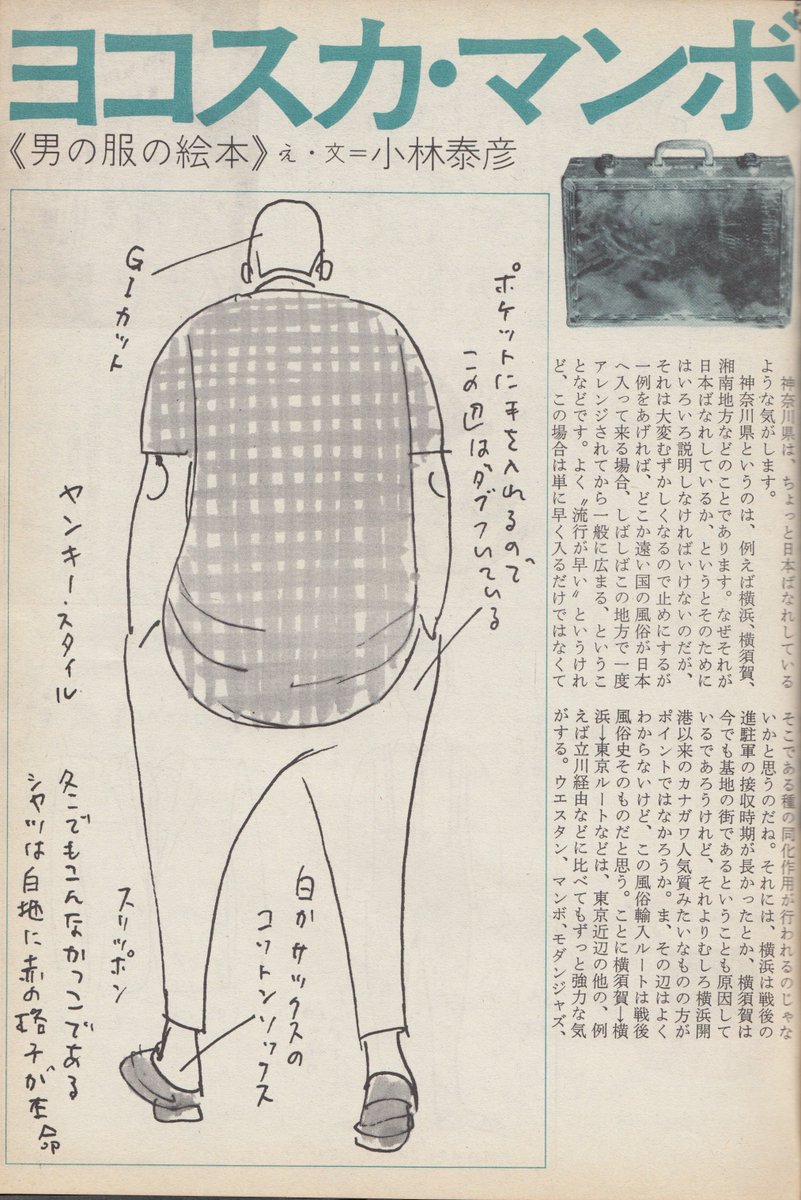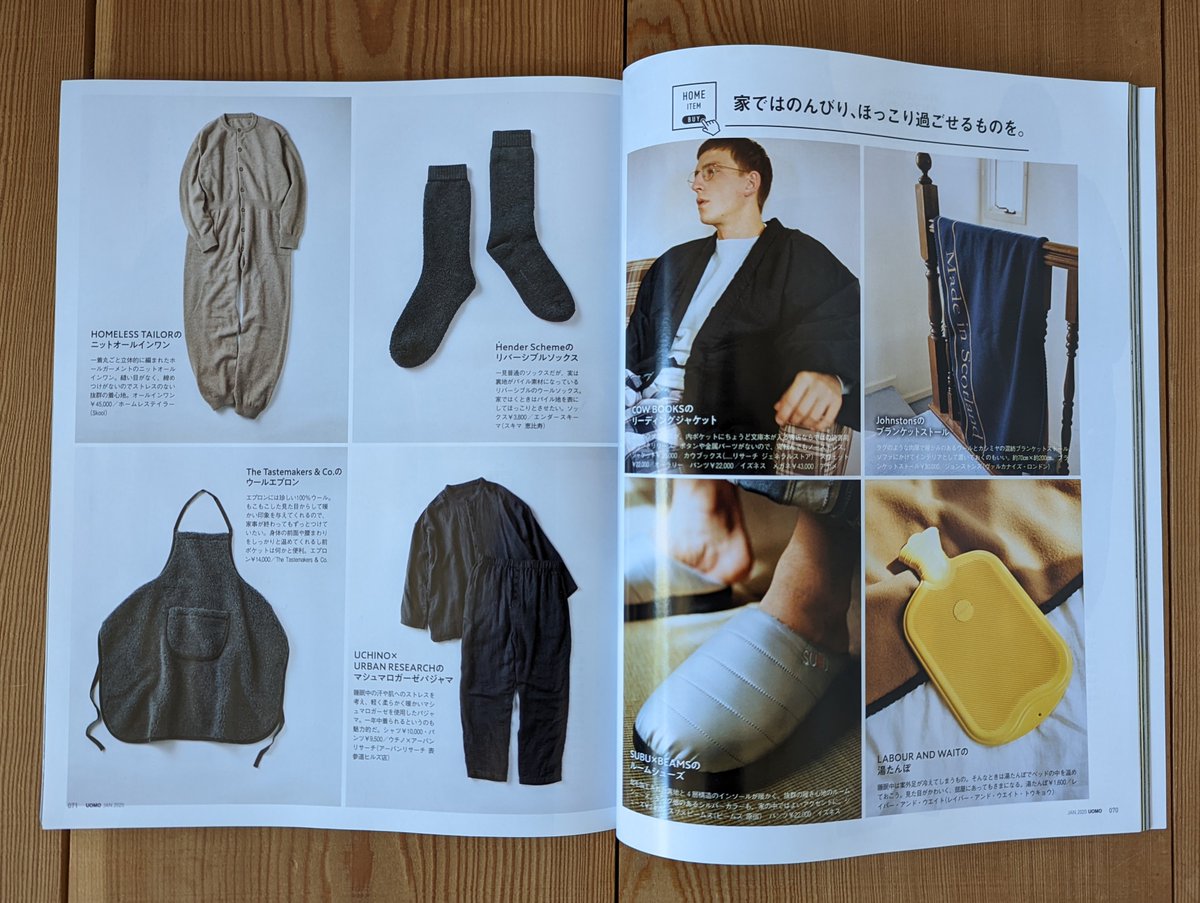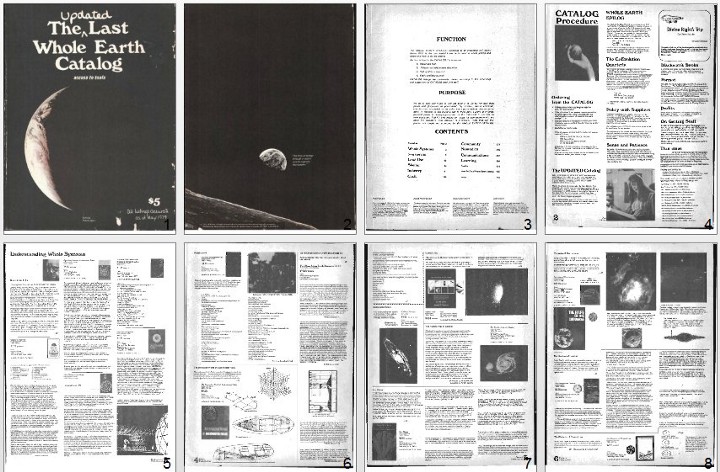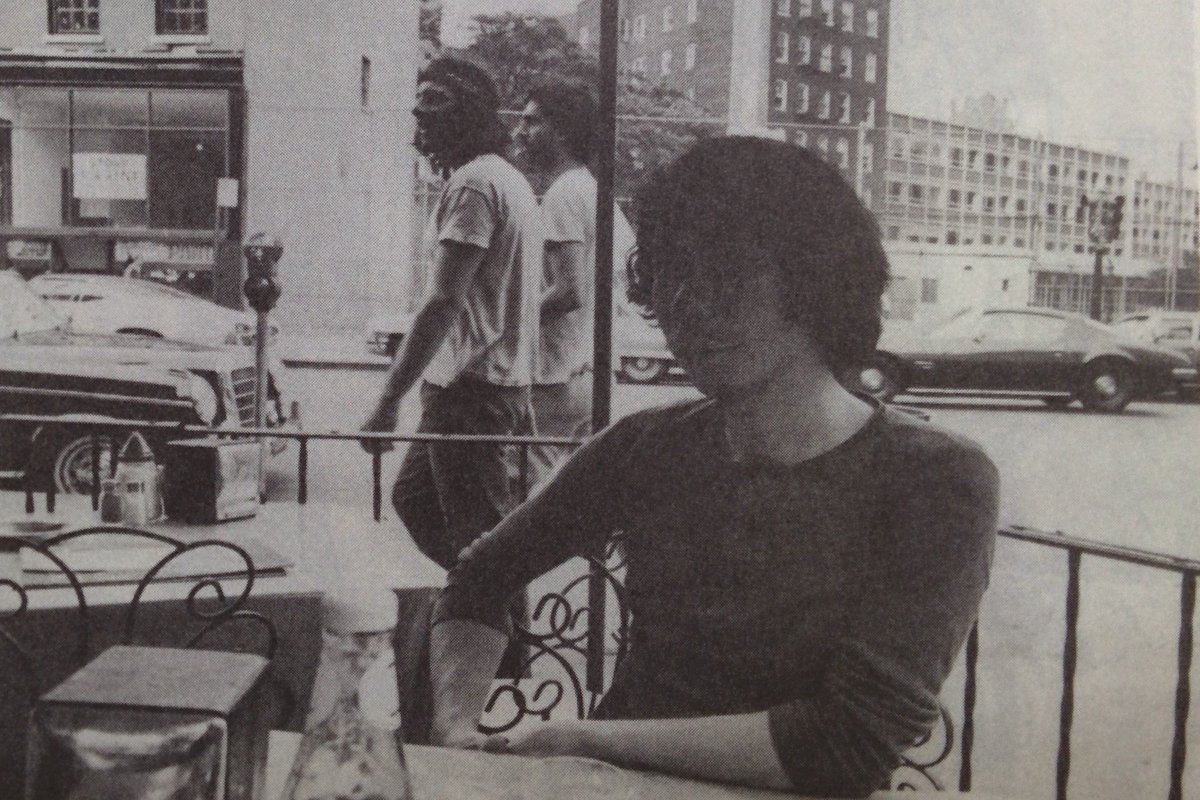
AMETORA MINI-STORIES #3 🧵
Why Japanese Teenage Delinquents are Called Yankii
In Japanese, the word used for working-class teenage delinquents is "yankii" (ヤンキー), which seems to derive from Yankee.
But stereotypical yankii style doesn't look very American... so why yankii?

Why Japanese Teenage Delinquents are Called Yankii
In Japanese, the word used for working-class teenage delinquents is "yankii" (ヤンキー), which seems to derive from Yankee.
But stereotypical yankii style doesn't look very American... so why yankii?


The yankii fit the common pattern of working-class subcultures (like Japanese Teddy Boys). They're a major part of post-war youth culture, especially as part of bōsōzoku biker gangs, and show up a lot in manga, films, and TV, such as Be-Bop High-School or baseball film Rookies. 

Typical yankii style is a fluffy permed pompadour slicked back with pomade (called a "regent"), a thin mustache, shaved eyebrows, angular sunglasses. They wear modified school uniforms with baggy pants, or, if bikers, jumpsuits often with Japanese imperialist slogans. 

The rock'n'roll band Yokohama Ginbae (L) was a 1980s parody of yankii style, and the pop group Kishidan (R) was a 2000s parody. 



The etymology of "yankii" has long been debated.
In Tokyo they were called "tsuppari" (defiance), whereas "yankii" was used in Western Japan. In Osaka dialect, the accent is on the "ii," and many believed it came from local teens' ending sentences with the Kansai-ben "yan ké."
In Tokyo they were called "tsuppari" (defiance), whereas "yankii" was used in Western Japan. In Osaka dialect, the accent is on the "ii," and many believed it came from local teens' ending sentences with the Kansai-ben "yan ké."
In the post-war period, the word "yankee" was used for Americans, especially in the context of 1960s anti-military sentiment (e.g. "Yankee, Go Home").
So how are "yankee" and "yankii" connected?
During research for my book Ametora, I found the rosetta stone of yankii etymology
So how are "yankee" and "yankii" connected?
During research for my book Ametora, I found the rosetta stone of yankii etymology
In the mid-'60s, there was a working-class delinquent subculture in Yokosuka called "sukaman" (Yokosuka Mambo). They dressed like U.S. soldiers: slick pompadours and sukajan ("Yokosuka jumpers") — rayon souvenir jackets with eagles, tigers, and dragons on the back. 

In 1966, Yasuhiko Kobayashi went to Yokosuka to do illustrated reportage of Yokosuka Mambo for Heibon Punch Deluxe. In the article, he used a very specific term to describe their look: “Yankee style,” because they looked like American enlisted soldiers. 



When the working-class band Carol appeared in the early 1970s, wearing leather jackets, pompadours, and riding huge motorcycles, their style was also called "yankee."
Carol was an enormous influence on working-class teens across Japan, especially biker gangs.

Carol was an enormous influence on working-class teens across Japan, especially biker gangs.


Then a similar Fifties-fashion look became popular with rich Tokyo kids, and this made bikers' leather "yankee" style look less threatening.
To stay scary, bikers switched to tokkōfuku (kamikaze clothing) — cleaning uniforms in imitation of ultra-nationalist paramilitary gear.

To stay scary, bikers switched to tokkōfuku (kamikaze clothing) — cleaning uniforms in imitation of ultra-nationalist paramilitary gear.


With Nameneko cats in the early 1980s, tsuppari style became a pop culture trend. But its later decline made the word "tsuppari" also sound dated.
In Western Japan, the teens were called "yankii" — which meant "pompadour" in barber shops — and this became the new national term.
In Western Japan, the teens were called "yankii" — which meant "pompadour" in barber shops — and this became the new national term.

So... working-class delinquents imitated Americans in the '60s and became known as "yankii" from Yankee. Once the word described the teens, not the look, everyone still called the teens "yankii" even if they wore non-American styles like nationalist jumpsuits and school uniforms
• • •
Missing some Tweet in this thread? You can try to
force a refresh










